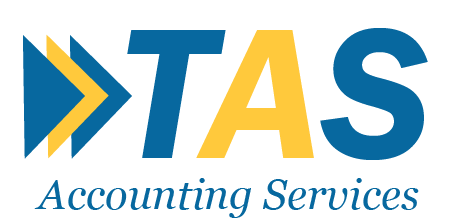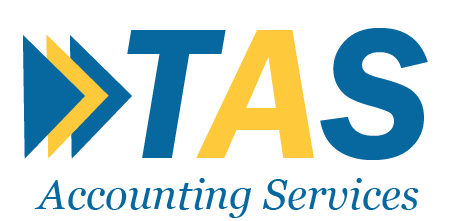Choose a Company Name
Choosing a company name is a fundamental step in the registration process. Your company name must be unique and not too similar to any existing company names registered with the Companies Registration Office (CRO). It is advisable to conduct a thorough name check on the CRO’s website to ensure your chosen name is available. Additionally, consider the branding and marketability of the name to ensure it reflects your business’s mission and values. Once a suitable name is selected, you can reserve it with the CRO to secure your business identity before moving forward with the registration process.
- Uniqueness: Ensure the company name is unique and not similar to existing company names.
- Restrictions: Avoid using restricted words that may require special permissions.
- Approval: Submit the name for approval through the Companies Registration Office (CRO).
Prepare the Required Documents
Before registering your company with nominee directors and shareholders, you will need to gather and prepare several key documents. These documents are essential for compliance and for the formal establishment of your company under Irish law.
- Company Constitution: This document outlines the rules and regulations governing the operations of the company. It includes the company name, registered office, objects clause, and internal management structure.
- Nominee Director Agreement: A contract outlining the responsibilities and limitations of the nominee director, ensuring they act in accordance with the shareholders’ directives while complying with legal requirements.
- Nominee Shareholder Declaration of Trust: A legal document whereby the nominee shareholder acknowledges that they hold shares on behalf of the beneficial owner and agrees to act according to their instructions.
- Identification and Proof of Address: Copies of valid identification (passport, driver’s license) and proof of address (utility bill, bank statement) for all directors, shareholders, and the beneficial owners.
- Registered Office Address: An address in Ireland where official documents and correspondence will be sent. This can be a physical office or a registered virtual office service.
- Incorporation Application Form: The completed application form (Form A1) which includes details such as the company name, registered office address, directors, secretary, and issued share capital.
- Statement of Compliance: A declaration confirming that the company complies with the provisions of the Companies Act 2014.
Gathering these documents and ensuring their accuracy is critical, as any errors or omissions can delay the registration process. Consulting with a legal or corporate services provider can help streamline this stage and ensure all required documentation is in order.
- Constitution: Draft a constitution for your company outlining its internal governance.
- Directors and Secretary: Provide details of your nominee director, secretary, and shareholders.
- Company Address: Specify a registered office address in Ireland.
Appoint Nominee Director and Shareholder
Appointing a nominee director and shareholder is a key step in the process of registering your company, particularly if privacy is a priority or if you require professional representation for legal or logistical reasons.
Nominee Director:
- Role and Responsibilities: A nominee director is appointed to act on behalf of the company and perform duties according to the shareholders’ instructions. They do not have any real control over the company and act only in a fiduciary capacity. It’s crucial to maintain a nominee director agreement to define their role clearly and ensure compliance with Irish company law.
- Selection Criteria: The nominee director should be well-versed in Irish business laws and regulations. They need to be trustworthy and reliable, as they will represent your company in all official matters.
- Documentation: Alongside the nominee director agreement, identification documents and proof of address need to be submitted to the CRO. Additionally, a statement of consent from the nominee director acknowledging their appointment is required.
Nominee Shareholder:
- Purpose: The nominee shareholder holds the shares of the company in trust for the actual owner, thus keeping the real ownership details private. This arrangement is particularly useful for individuals who wish to remain anonymous in the public records.
- Trust Declaration: A nominee shareholder declaration of trust is necessary to formalize the arrangement. This document confirms that the nominee shareholder holds the shares on behalf of the beneficial owner and agrees to act only upon the beneficial owner’s instructions.
- Confidentiality Assurances: Ensure that the nominee shareholder is bound by confidentiality agreements to protect the privacy of the beneficial owner.
Process of Appointment:
- Draft Agreements: Prepare the necessary legal agreements for both the nominee director and nominee shareholder.
- Collect Identification: Obtain the required identification and proof of address documents for the nominee director and shareholder.
- File with CRO: Submit the relevant documents and agreements to the Companies Registration Office along with the incorporation application (Form A1). Ensure that all information provided is accurate to avoid delays in the registration process.
By appointing a nominee director and shareholder, you enhance the privacy and professionalism of your company, allowing you to focus on your business goals while ensuring compliance with Irish regulatory requirements.
- Nominee Director: A nominee director is appointed to fulfill the legal requirement of having an Irish or EEA-resident director.
- Nominee Shareholder: A nominee shareholder holds shares on behalf of the beneficial owner, maintaining privacy.
- Agreements: Formalize the nominee arrangements through legal agreements to ensure clarity and security.
File Incorporation Documents
Filing the incorporation documents is a critical step in formally registering your company with the Companies Registration Office (CRO) in Ireland. This process involves the submission of several key documents that provide detailed information about the company, its structure, and its management. Here are the main documents you will need to prepare and file:
- Form A1: This is the incorporation application form that must be completed and submitted to the CRO. It includes important details such as the company name, registered office address, details of directors and secretary, and the intended principal activity of the company.
- Company Constitution: A carefully drafted constitution that sets out the internal rules and regulations of the company. It should cover essential elements like the objects clause, share capital, and the rights of shareholders.
- Statement of Compliance: This is a declaration made by a director or secretary of the company, confirming that all legal requirements relating to the incorporation have been complied with.
- Identification and Proof of Address: Copies of valid identification (passport, driver’s license) and proof of address (utility bill, bank statement) for all directors, shareholders, and the beneficial owners must be included.
- Declaration of Beneficial Ownership: A document required to disclose the individuals who ultimately own or control the company, ensuring transparency.
- Registered Office Address: Proof of a registered office address in Ireland where official correspondence will be sent. This can be a physical office or a registered virtual office service.
- Consent to Act as Director/Secretary: Signed statements from each director and the company secretary, agreeing to act in their respective capacities. These consents signify their willingness to undertake the roles and responsibilities.
Once these documents are gathered, they need to be meticulously reviewed for accuracy, as any errors or omissions can lead to delays or rejections. It’s advisable to seek assistance from legal advisors or corporate service providers to ensure that all documentation is in order before submission. After submitting the documents, the CRO will review the application, and upon approval, will issue a Certificate of Incorporation, marking the successful registration of your company.
- Form A1: Complete and submit Form A1, which includes details about the company, its directors, and shareholders.
- Supporting Documents: Attach the constitution and any other required documentation.
- Submission: File the documents with the CRO online or via post.
Pay the Registration Fee
Paying the registration fee is a mandatory step in the process of incorporating your company in Ireland. The Companies Registration Office (CRO) requires this fee to process and register your new business entity. The amount of the fee can vary depending on the mode of submission and the type of company being registered. Here are some important details to consider:
- Fee Amount: As of the latest updates, the standard registration fee for submitting incorporation documents directly to the CRO is €50 when filed online through CORE (Companies Online Registration Environment). For paper filings, the fee typically rises to €100. Different fees may apply based on the specific business structure, such as a private limited company (LTD), designated activity company (DAC), or other types.
- Payment Methods: Payment can be made via multiple methods, including credit card, debit card, and direct debit if filing online. Ensure you have the necessary payment details ready when filing. For paper submissions, payment is usually accepted through postal orders, bank drafts, or cheques made payable to the Companies Registration Office.
- Receipt and Confirmation: Upon successful payment, you will receive a confirmation receipt. This receipt should be kept safely as it serves as proof of payment and is required in case any discrepancies arise later.
- Additional Fees: Be aware that additional fees may be incurred for any amendments or corrections to the submitted documents. It’s advisable to review all the information thoroughly before submission to avoid any extra costs.
By understanding these details, you can ensure that the registration fee is paid correctly and efficiently, facilitating the smooth incorporation of your company. This step is crucial as incomplete or incorrect payment can lead to delays in the incorporation process. Once the fee is paid and all documents are successfully submitted, the CRO will proceed with the review and approval of your application.
- Amount: Pay the standard registration fee to the CRO. This fee varies depending on the method of filing (online or paper).
- Confirmation: Retain the receipt as proof of payment.
Obtain a Company Registration Number
After successfully submitting your incorporation documents and paying the necessary registration fee, the next crucial step is obtaining a Company Registration Number (CRN) from the Companies Registration Office (CRO). This unique identifier is assigned to your business and is essential for various legal and administrative purposes. Here’s a detailed breakdown of what you need to know:
- Review and Approval: Once all required documents and fees have been submitted, the CRO will meticulously review your application. This review process ensures that all legal requirements are met and that there are no errors or omissions in the provided information.
- Issuance of Certificate of Incorporation: Upon approval of your application, the CRO will issue a Certificate of Incorporation. This certificate officially confirms the formation and registration of your company and includes your Company Registration Number.
- Notification: The CRO typically notifies applicants of the successful registration and issuance of the CRN through email or postal mail, depending on the mode of submission. Ensure that you provide accurate contact details to receive this notification promptly.
- Usage of CRN: Your Company Registration Number must be used in all official documentation and correspondence relating to your business. This includes tax filings, legal contracts, invoices, and any other formal communications.
- Record Keeping: It is essential to keep a permanent and easily accessible record of your Company Registration Number and the Certificate of Incorporation. These documents may be required for future business activities such as opening a bank account, applying for licenses, or any legal proceedings.
Receiving your Company Registration Number marks a significant milestone in your company’s incorporation process, symbolizing the official recognition of your business by Irish authorities. This number serves as a vital reference point for any future transactions or interactions with regulatory bodies.
- Issuance: Once the incorporation documents are processed, the CRO will issue a Company Registration Number (CRN).
- Certificate of Incorporation: Receive a Certificate of Incorporation, which serves as legal proof of your company’s existence.
Satisfy Compliance Requirements
Satisfying compliance requirements is a critical aspect of maintaining your company’s good standing and ensuring ongoing legality in its operations. Once your company has been incorporated, there are several ongoing obligations and regulations that must be adhered to. Here’s a comprehensive overview of the compliance requirements you need to be aware of:
- Annual Return: Every company is required to file an annual return with the Companies Registration Office (CRO). The annual return provides updated information about the company’s financial performance, shareholders, and directors. The first annual return is generally due six months after incorporation, and subsequent returns are due annually.
- Financial Statements: Along with the annual return, companies must also submit annual financial statements. These statements should detail the company’s financial health, including profit and loss accounts, balance sheets, and any other relevant financial data.
- Corporate Tax Returns: Companies are obligated to file corporate tax returns with the Irish Revenue Commissioners. This involves reporting your income, expenses, and tax liability. Timely payment of any owed taxes is crucial to avoid penalties and interest.
- Directors’ Duties: Company directors have numerous responsibilities, including maintaining accurate records, ensuring the company operates within the law, and acting in the best interests of the company and its shareholders. Failure to fulfill these duties can result in significant penalties and legal consequences.
- Updating Company Information: Any changes to company details, such as the registered office address, directors, or shareholders, must be promptly reported to the CRO. This ensures that the official records are accurate and up-to-date.
- Data Protection Compliance: Companies must adhere to data protection regulations, such as the General Data Protection Regulation (GDPR), which requires the safeguarding of personal data and maintaining privacy practices.
- Employment Law Compliance: If your company employs staff, it must comply with employment laws covering areas such as contracts, working conditions, health and safety, and employee rights. Keeping up-to-date with these laws helps prevent legal issues and promotes a fair workplace.
- Periodic Audits: Depending on the size and type of your company, periodic external audits might be a requirement. These audits are conducted to verify the accuracy and integrity of your financial statements and operations.
Adhering to these compliance requirements ensures that your company operates within legal boundaries, maintains its reputation, and avoids costly fines or legal actions. Regularly reviewing and understanding these obligations is essential for the smooth and lawful functioning of your business in Ireland.
- Tax Registration: Register for taxes with the Revenue Commissioners (VAT, Corporation Tax, PAYE, etc.).
- Annual Returns: Ensure timely filing of annual returns with the CRO.
- Accounting: Maintain accurate financial records and prepare annual financial statements.
















